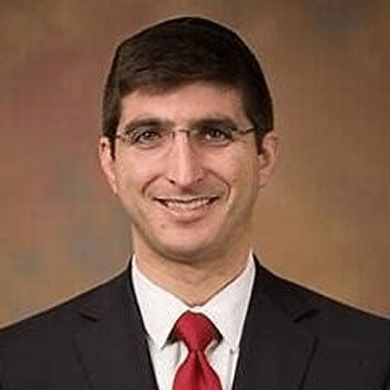Police Shooting Lawyer
Gun violence is an American epidemic. Sadly, American police are not immune, with more than 8,000 fatal police shootings occurring since 2015. Police shoot and kill close to 1,000 people every year and injure even more, according to the nonprofit advocacy group Everytown for Gun Safety. In addition to the loss of life and pain for family members and survivors that police brutality causes, these shootings dramatically reduce public confidence in the police.
Attorneys that work with Police Brutality Center may be able to assist you.
"*" indicates required fields
Content Last Updated: January 30, 2026
Solving the American police violence problem will take more than reforms aimed at reducing police shootings and holding officers accountable—the country must also confront its history of racism and examine the appropriate role of police in public safety. At the Policy Brutality Center, our mission is to bring awareness to the police brutality epidemic. We provide resources to police brutality victims and can connect them with knowledgeable and experienced civil rights attorneys so they can pursue the justice they deserve.
Do I Have a Case Against the Police Department for a Shooting?
If you or a family member was wounded in a police shooting by an officer, you have rights and legal options. Victims of police shootings—or their family members if the shooting was fatal—may be eligible to file a lawsuit against the city or the police department involved.
However, pursuing legal action against a police department is complex. Numerous legal protections and immunities shield police officers and their departments from certain lawsuits. The police department involved will surely deny wrongdoing in most cases, and officers are rarely charged criminally, let alone found guilty of any misconduct. However, many cities settle police shooting lawsuits out of court.
Connect With an Experienced Police Brutality Lawyer
Police Brutality Center partners with nationally recognized trial attorney Solomon Radner of Radner Law Group, PLLC, to help victims of police misconduct across the United States. Attorney Radner has been honored as a Super Lawyer since 2014 and named among the Top 40 Under 40 trial attorneys by the National Trial Lawyers Association.

How A Police Shooting Lawyer Can Help
To succeed in a police shooting claim, you’ll need an experienced attorney who not only knows the law but understands the tactics police use to evade accountability. At Police Brutality Center, we work with multiple firms and can connect you with the best attorney for your potential case.
An experienced attorney can investigate your police shooting case and fight for compensation. They can gather evidence such as the following:
- Surveillance video
- Body cam footage
- Dashcam footage
- Witness testimony
- Medical records
- Police reports
- Police policy manuals
They’ll build the strongest case possible to overcome the department’s defenses and negotiate for a fair and just settlement. If they can’t reach a settlement, they’ll fight for you in court to pursue the justice you deserve.

I think what sets us apart is not only our expertise in this subject matter, but also the fact that we’ve litigated these kinds of issues across the entire country. I personally have appeared in courts in at least 23 or 24 states with the primary focus on police brutality and civil rights.
Justice for Victims and Their Families
Many police shooting cases become very high-profile once the media finds out what happened, especially when the shooting was fatal. As a result of hiring a lawyer and bringing forth a case, the families of these victims are often able to recover millions for their loss and the police’s illegal use of force. Some examples of these settlements include the cases discussed below.

Philando Castile
On July 6, 2016, Philando Castile, a 32-year-old Black man, was fatally shot during a traffic stop by an officer of the St. Anthony Police Department in Minnesota. The city settled wrongful death lawsuits brought by Castile’s family and girlfriend for a total of $3.8 million. Jeronimo Yanez, the officer who shot Castile five times, was charged with second-degree manslaughter and two counts of dangerous discharge of a firearm but was acquitted by a jury in June 2017.

Rayshard Brooks
Rayshard Brooks, a 27-year-old Black man, was fatally shot by police in an Atlanta parking lot. June 2020. Brooks’ family reached a $1 million settlement with the city, but prosecutors did not pursue criminal cases against the officers involved.

Kenneth Ross Jr.
Kenneth Ross Jr., 25, was fatally shot by Gardena, California, police in 2018. His son later received $1.3 million in a settlement with the city. Gardena police did not admit wrongdoing, and the Los Angeles County District Attorney’s office concluded that the officer involved acted in “lawful self-defense.” However, California Governor Gavin Newsom later signed the Kenneth Ross Jr. Police Decertification Act of 2021, decertifying law enforcement officers convicted of misconduct or other serious crimes. Once an officer is decertified, they can no longer serve as a police officer in California.

Isaias Cervantes
In March 2021, police shot Isaias Cervantes, an unarmed, deaf, autistic man, leaving him permanently paralyzed. The Los Angeles County Board of Supervisors paid his family a $25 million settlement, but the sheriff’s department determined that the deputies involved did not violate any of the department’s use-of-force policies.

Amir Worship
In May 2019, SWAT team officers shot 12-year-old Amir Worship in the kneecap in Richton Park, Illinois. Worship was sitting on the edge of a bed with his hands up when police shot him. The officer involved has faced no consequences, but the city of Richton Park paid $12 million to settle a suit filed by Worship’s mother.
Police Shootings: The Facts
- Law enforcement officers cause an average of 250,000 civilian injuries every year, with 85,000 of those injuries requiring hospital treatment.
- Police shoot an average of 1,769 people annually in the United States, and more than half of those shootings are fatal.
- According to the University of Illinois Chicago’s data on police violence, more than 50 million people annually across the nation have in-person contact with police. One million civilians reportedly experience the threat or use of force during these interactions, and 15 percent of them are injured.
- Shootings are far more common in situations involving people with mental or behavioral health conditions. These incidents made up almost a quarter of all police shootings.
- Two-thirds of all police shootings involving someone suffering a mental or behavioral health episode ended in a fatality.
Racial Disparities in Police Shootings
People with mental or behavioral health challenges aren’t the only demographic disproportionately affected by police violence. While Black men comprise about 6 percent of the U.S. population, they make up a quarter of those killed by law enforcement.
Experts attribute the police violence epidemic to a toxic combination of systemic racism, white supremacy, American gun culture, and the militarization of law enforcement, and people of color are paying for it with their lives. According to a Johns Hopkins police shooting study, Black people are three times more likely to be shot and killed by police than white people. Moreover, Hispanic and Latino people are twice as likely to experience the threat or use of force as white people.
Use of Force Laws
The U.S. Department of Justice’s policies on the use of force provide that law enforcement officers may only use force that is “objectively reasonable to effectively gain control of an incident” while protecting their safety and that of others. Officers are only permitted to use force when no reasonably effective, safe, and feasible alternative exists, and they must use de-escalation techniques to gain voluntary compliance before resorting to force. When the police uses tactics that exceed what is reasonable, issues like injury or death often arise from excessive force.
In the 1989 decision Graham v. Connor, the U.S. Supreme Court found that courts must analyze excessive force claims under the Fourth Amendment’s “objective reasonableness” standard and consider the severity of the crime, whether the suspect poses an immediate safety threat, and whether the suspect is resisting or evading arrest. However, the court also noted that officers have to make “split-second judgments” and that the reasonableness of the use of force must be judged from the perspective of a reasonable officer on the scene.
Speak with a Police Shooting Lawyer Today
When officers of the law use unnecessary or excessive force, they should face justice, and the victims should receive compensation for their suffering. If you or a loved one were a victim of police brutality, attorneys working with Police Brutality Center may be able to assist you. Get legal help today.
